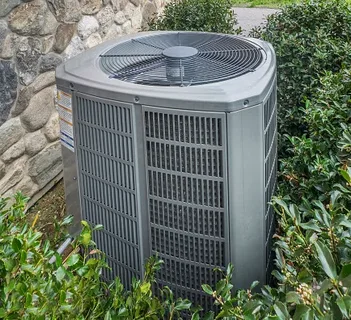The AC condenser unit is an essential part of any air conditioning system, responsible for ensuring efficient cooling performance and maintaining comfortable indoor environments. Often positioned outdoors, this vital component works to transfer heat from inside your home to the outside air. While it may seem like a simple process, the AC condenser’s function involves complex engineering designed to deliver optimal cooling efficiency.
In this article, we’ll delve into the workings of the AC condenser unit, explore its benefits, common issues, and how you can maintain it for years of reliable operation.
How Does an AC Condenser Unit Work?
The AC condenser unit plays a central role in the refrigeration cycle, a process that removes heat from your indoor air and releases it outdoors. Here’s a step-by-step overview:
- Compression of Refrigerant: The compressor inside the condenser unit compresses the refrigerant, raising its temperature and pressure.
- Heat Dissipation: The hot refrigerant flows through the condenser coils. As outdoor air passes over these coils (aided by the condenser fan), the refrigerant releases heat.
- Condensation: The refrigerant transitions from a high-pressure gas to a high-pressure liquid as it cools, making it ready to absorb heat again.
This cycle repeats continuously, keeping your indoor space cool and comfortable.
Key Benefits of an Efficient AC Condenser Unit
A well-maintained AC condenser unit offers numerous advantages, including:
- Energy Savings Modern condenser units are designed to minimize energy consumption, helping to lower utility bills while maintaining excellent cooling performance.
- Consistent Comfort By effectively removing heat from your indoor environment, the condenser ensures consistent cooling even during the hottest days.
- Extended System Life Properly functioning condensers prevent undue stress on other HVAC components, increasing the overall lifespan of your system.
- Reduced Environmental Impact Advanced systems use eco-friendly refrigerants and energy-efficient technology, contributing to a greener planet.
Common Problems with AC Condenser Units
Over time, AC condenser units can encounter issues that impact their efficiency. Here are some of the most common problems and their potential solutions:
1. Blocked Airflow
Debris, leaves, or dirt can obstruct airflow around the condenser coils, reducing efficiency.
Solution: Regularly clean the area around the unit and remove any obstructions.
2. Refrigerant Issues
Low refrigerant levels, caused by leaks, can hinder the system’s ability to cool effectively.
Solution: Call a professional to repair leaks and recharge the refrigerant.
3. Electrical Failures
Damaged wiring or faulty capacitors can disrupt the condenser’s operation.
Solution: Schedule an inspection with a certified technician to address electrical issues.
4. Coil Corrosion
Exposure to outdoor elements can lead to corrosion of the condenser coils, reducing heat transfer efficiency.
Solution: Apply protective coatings or replace corroded parts as needed.
Maintenance Tips for Prolonging the Life of Your AC Condenser Unit
To ensure your condenser unit runs smoothly for years, follow these maintenance tips:
- Regular Cleaning Use a gentle stream of water to clean the condenser coils and remove dirt buildup.
- Inspect the Unit Periodically check for signs of wear, rust, or damage to the unit’s components.
- Check the Refrigerant Levels Ensure the refrigerant is at the appropriate level to avoid strain on the compressor.
- Schedule Professional Maintenance Have your HVAC system inspected and serviced annually by a qualified technician.
- Monitor Performance Pay attention to unusual noises, reduced cooling efficiency, or increased energy bills, as these may indicate a problem with the condenser unit.
Innovations in AC Condenser Technology
The HVAC industry is continually evolving, and AC condenser units are benefiting from cutting-edge advancements. Here are some notable innovations:
- Variable-Speed Compressors These compressors adjust their speed based on cooling demand, resulting in greater energy efficiency and quieter operation.
- Smart Controls IoT-enabled systems allow homeowners to monitor and control their HVAC systems remotely, optimizing performance and reducing energy waste.
- Eco-Friendly Refrigerants Modern units now use refrigerants with lower Global Warming Potential (GWP), reducing environmental impact.
- Enhanced Durability Improved materials and protective coatings make condenser units more resistant to harsh weather conditions and corrosion.
Choosing the Right AC Condenser Unit
If you’re in the market for a new AC condenser unit, consider the following factors:
- Size and Capacity Ensure the unit’s capacity matches the cooling requirements of your space.
- Energy Efficiency Ratings Look for units with a high SEER (Seasonal Energy Efficiency Ratio) rating for optimal energy savings.
- Brand and Warranty Choose a reputable brand with a solid warranty to safeguard your investment.
- Budget Balance upfront costs with long-term savings from energy-efficient models.
Conclusion
The AC condenser unit is a cornerstone of your HVAC system, ensuring effective heat exchange and reliable cooling performance. Understanding how this essential component works and taking proactive measures to maintain it can save you time, money, and energy.
By investing in a high-quality condenser unit, staying on top of maintenance, and exploring new technologies, you can enjoy a comfortable indoor environment year-round. Whether upgrading your system or looking to extend the life of your current one, the condenser unit’s role cannot be overstated.



